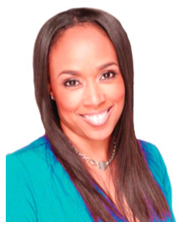
Ten Reasons Why You Are Not Getting Business from LinkedIn
LinkedIn is one of the most powerful platforms for any business owner, linking entrepreneurs to entire networks of untapped markets and customer bases. The challenge is not how business owners fail to use LinkedIn but how entrepreneurs misuse the platform. For business, some entrepreneurs fail to recognize certain things when using LinkedIn. Not recognizing these things could lead to not getting business from it and unintentionally harming business relationships.
I decided to write this article because I have successfully been in business since 2001, and I love what I do. Yet, I have never had to sell anyone on my services. All my work has been from word of mouth. Lately, when I come to LinkedIn, I feel as though I am at a meat market—so many people throwing their names at me as if I should be interested in what they have to offer. Typically, I am not!
As a behavioral psychologist, I am interested in behavior and the way people treat one another. I attempt to use the Golden Rule with my contacts—“treat others the way you would want to be treated.” I genuinely care about people and see my contacts as an extension of my village and community. Community to me is a sacred place that should be honored. Here is an article that might help people play on the community playground more respectfully.
Reasons some people don’t get business from LinkedIn:
1. Not building relationships and not letting people know you care
Zig Ziglar said, “People don’t care how much you know until they know how much you care.” Not building relationships is one thing most new entrepreneurs overlook. You must let people know you care about them. Simple gestures such as greeting your clients on a holiday help a lot. It gives the impression that you don’t care only about their money, but you also care about them deeply. I reach out to new and old contacts on LinkedIn, not because I want something from them, but because I genuinely care about them and want them to know it.
I send messages, first to introduce myself and then to let them know what an honor it is to have them in my community. It builds better connection and warmth between you and your network. I find it odd when people want to sell me something before they know who I am or what I need. Simply said, focus on connecting with people first, and if there is ever the chance they want to buy from you, they will find you! Better connection leads to a rich business relationship. Expressing that you care about your past and potential clients can go a long way.
2. Not communicating regularly
What is a relationship without communication? Communication is vital in every relationship; hence, maintaining communication between you and your contacts is vital. Nothing will happen if you just let your LinkedIn profile stand there and you never attempt to connect with your network. Communication must begin with you. Posting articles, graphics, and anything that prompts a dialogue helps. By doing that, you communicate with people and let them know who you are. . Remember, it is not about selling; it is about building rapport.
I love my LinkedIn network. They give me so much support and let me know how my work helps them. They also refer people to me when it is a good fit, and I do the same for others. Social connection is in our blood. We are social creatures. Stop thinking of your contacts as dollar signs $$$$. Empower them, and give them whatever tools they need to be successful.
Another of my favorite Zig Ziglar quotes comes to mind here: “You can have everything in life you want, if you will just help enough other people get what they want.” Communicate with your network with sincerity. My connection’s goal is to create a community of happy and empowered people who pay it forward. I secretly want to leave the world better :).
3. Not increasing searchableness
If you really want business from LinkedIn, use technology, not people. Allow the technology to help those who want your services find you. As a business coach, I cringe at some ways people approach me. Trust me, most people who want you or your services use search engines, and you should too! Many LinkedIn users overlook optimizing their LinkedIn page for search engines. Linking your LinkedIn page to your other business platforms, such as websites and other social media accounts, helps increase your online searchableness.
In addition, for content, keep your sentences short, use bullet points and lists, and add visual elements. Use keywords that also help you optimize your page. By doing this, your profile is an easy search on search engines; hence, you can easily reach your market.
4. Not adding variety in what you share
People want variety. Most people on LinkedIn just continue to share the same things on their page without adding variety. Promoting your brand without any content can bore people who see your profile, and it gives an impression that you only want to sell, not to help people. Sharing information interesting or relevant to your audience surely helps draw people to your page. Sharing it in different formats—article, video, posters, and so on—is also great. Add some creativity to what you share in LinkedIn.
5. Not adding your personality on your page
No one wants to read a page that looks robotic. By that, I mean, don’t put too many technical words, or jargon, on your page. Connect to people by adding a personal touch to your page. Find the balance between making your updates look professional and personal at the same time. Make your page seem as though it is talking to the people reading it.
6. Not making your words concise
I love writing and reading, and one of the most difficult things for me is remembering that not everyone wants to read my dissertation every time I have an update or a post. Few people enjoy reading long pages on the Internet. Hence, you need to keep your language plain and simple. Make people connect with your brand by using easy language. Find ways to help people find information, information that will help them quickly, in your updates. Infographics and text images can be a good way to deliver the right amount of information in the right style and format.
7. Not keeping up with trends on consumer needs
You might have a good brand, but if you don’t keep up with customer demands, it might not sell well. Take time to research what your prospective clients want. Understand your market, and adjust your approach, when necessary. Post regularly about new information in the industry of your choice or on a topic about which you are passionate. I have seen people post information from 10 years ago that is no longer pertinent to the industry. For example, if you are going to post about Annual Reviews and the best way to do it, be sure you are prepared to include the pros and cons of how Accenture has decided to handle them going forward. Knowing trends is like homework—everyone hates it, but it must be done!
8. Not getting testimonials or recommendations
Testimonials are a great way for your brand to gain credibility. Positive words from your previous clients help you gain trust from your prospective customers. Hence, never underestimate the power of endorsements on LinkedIn. Good words from others will surely help you in your business. I am a fan of asking clients after working with me if they would recommend me on LinkedIn. Make it easy for them to do this. Give them specific directions on how to create the recommendation. I have a form letter with step-by-step instructions that tell them where to point and click. Anytime you ask people to help you, make it as easy as possible for them to do it.
9. Profile unprofessional or incomplete
No one wants to deal with people who do not look serious when doing business. Make your LinkedIn profile page as professional as you can. Use high-quality images and information to make a good impression on visitors. Adding a portfolio can also speak a lot about your brand. The quality of things you post on your page reflects the quality of products or services you can give to your clients. Remember that success in LinkedIn depends on reputation. Remember that LinkedIn is not Facebook, so nothing you would put on Facebook should be on LinkedIn. LinkedIn is for business-minded people. Facebook is for everyone.
10. Not joining industry-specific groups
Your brand will not sell if you don’t target specific groups. Joining industry-specific groups connects you with the right people for your business. Share your knowledge with people, and people will contact you or possibly refer you.
These are some reasons why some new entrepreneurs don’t get business from LinkedIn. Remember that getting business through LinkedIn is not just about direct selling. You need to connect and build relationships. Share your knowledge and expertise on the platform, and make people feel that you care. Doing otherwise will not help you get business from LinkedIn or in life. Love the people on LinkedIn, and watch the community grow and your business thrive.
Create a powerful day!
Cherry A. Collier, Ph.D., MCC, CNLPMC, RCC, CPCC
Chief Collaboration Officer, Master Certified Executive Coach & Inclusion Strategist
Personality Matters Incorporated provides many services including coaching, leadership, and organizational development. It is Personality Matters, Inc.’s goal to help facilitate the necessary resources and tools to help individuals and organizations grow to achieve their goals.
919.4.PEOPLE or 919.473.6753
Email: mypersonalitymatters@gmail.com
Blog: https://drcherrycoaching.com/myblog/
Web Personality Matters: www.pmatters.org
Web Dr. Cherry: https://drcherrycoaching.com/
My latest books:
Image: Shutterstock paid subscription all rights reserved

